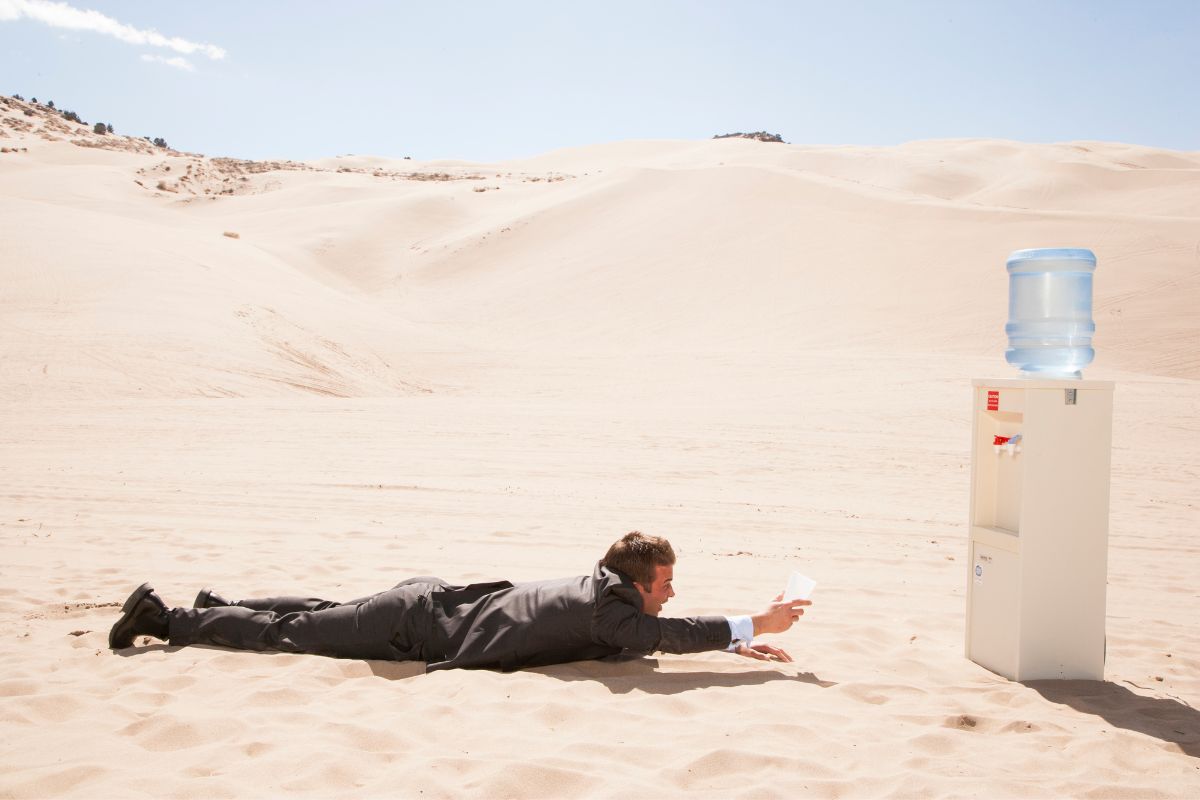When I first started out in the business world, I would dream of the day I had my own water cooler in my office. I don’t know why — I just always felt like having one would be a sign that I was finally successful.
Well, I finally got a brand new, space-age, state-of-the-art water cooler, and I’ve got to say, they’ve changed a lot since the clunky, gravity-fed dinosaurs of days gone by. You know the ones — the water bottle was up top, and you’d have to maneuver it into place, and you’d always spill a little bit, but once it was up there, gravity did the rest of the work. Crude, but simple.
My new system has a pump, so the water container can go underneath it, which is nice and convenient, but I just know that someday this pump is going to fail. It might be five years from now, it might be five months from now, but someday it will break, and I’ll need a specialist to come fix it.
I asked my water distributor, and he told me that not only is the water cooler company dealing with technical problems and issues with inter-team communication, but it’s also dealing with a costly staffing shortage!
Even simple business models with few functions encounter unexpected risk and complexity. Things catch you by surprise. I bet until this year, or until very recently, my water cooler company was not even thinking about staffing as one of their key risks. And yet, as the labor market changes, you still need to get water into people’s offices.
With capability comes complexity, which is something I talk about in Meltdown.
Complexity can arise in even the most unexpected places, which is exactly what I ponder in my newest video. Here’s something a simple conversation with a water delivery agent taught me about the unexpected risk of operating a business:
In Meltdown, we talk about the paradox of progress and how capability adds complexity. There’s always going to be risks out there that you can’t consider.
We have a free sample chapter available here.
Check it out if you haven’t read it yet, and if you have, leave a comment about something you’ve taken away from it.
With that, I’ll say thank you for your attention, and I’ll see you next time.

